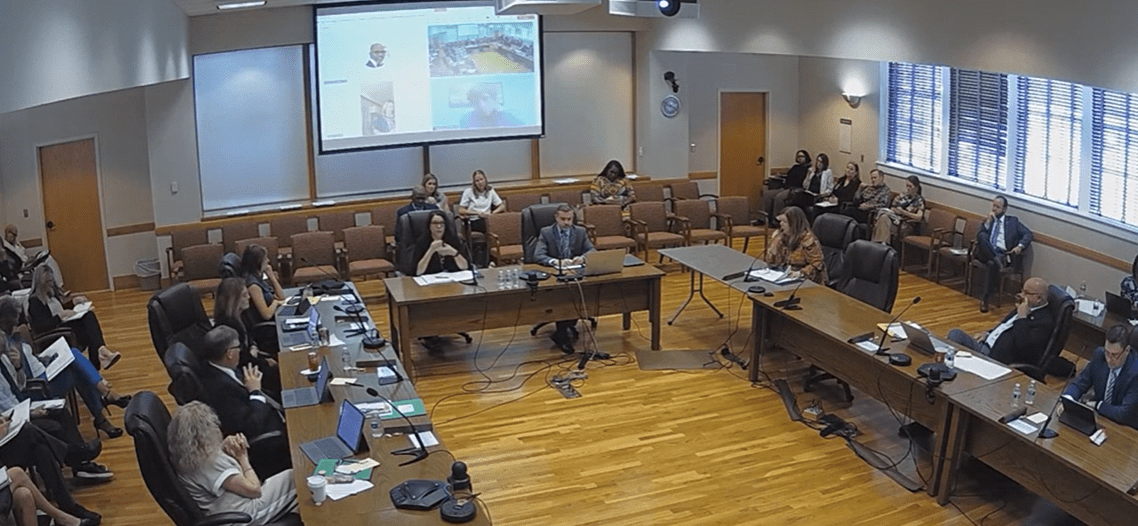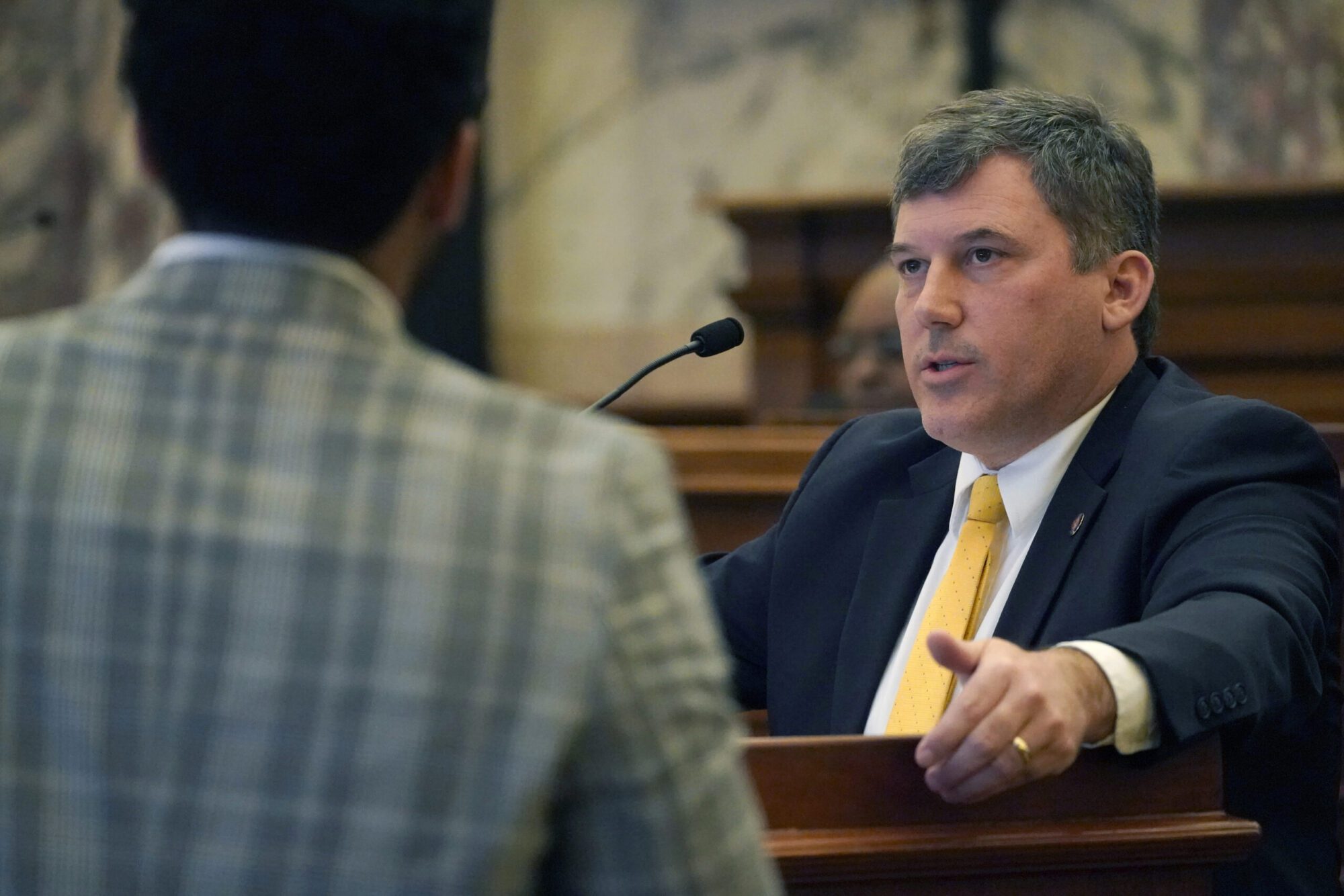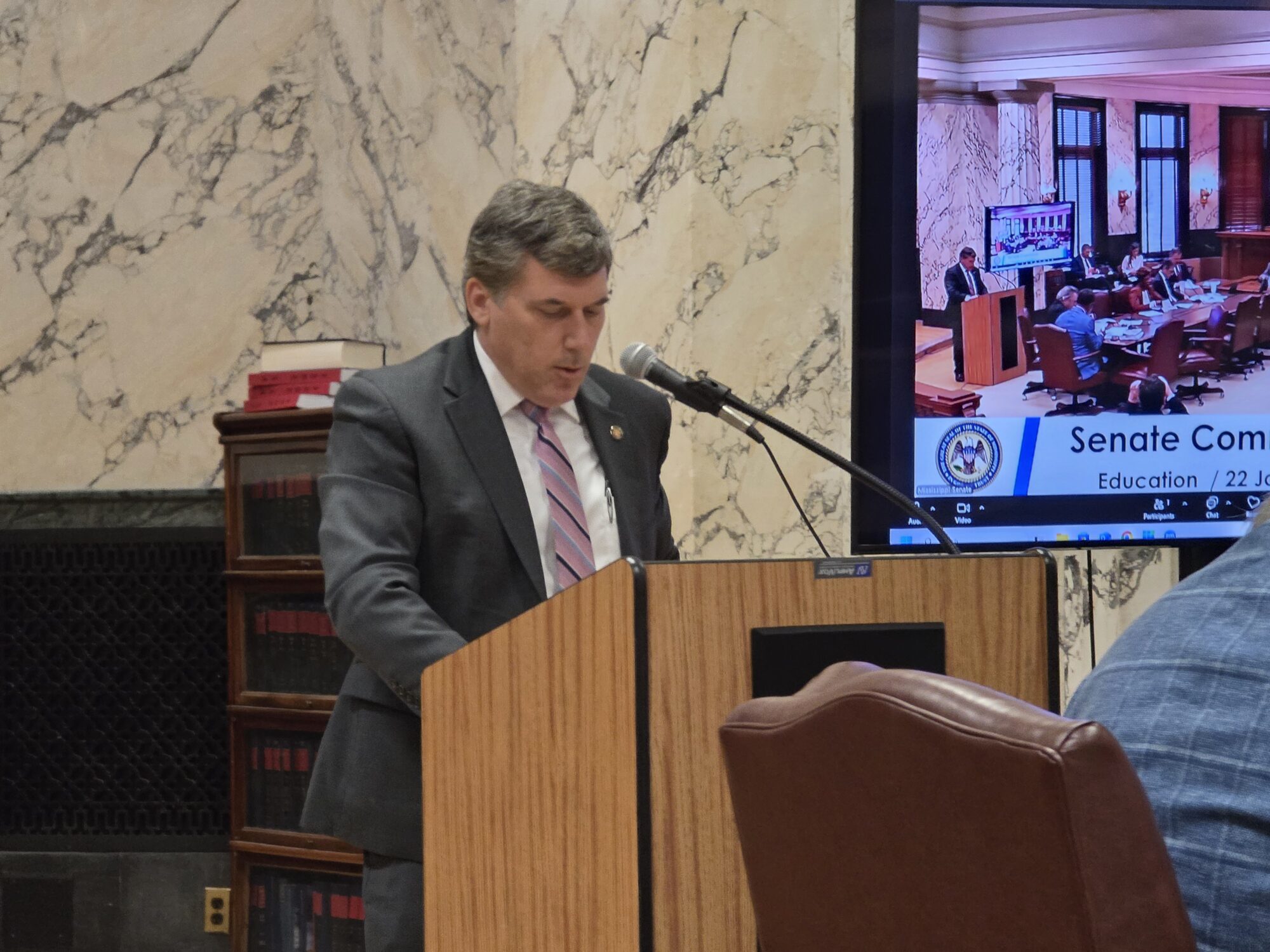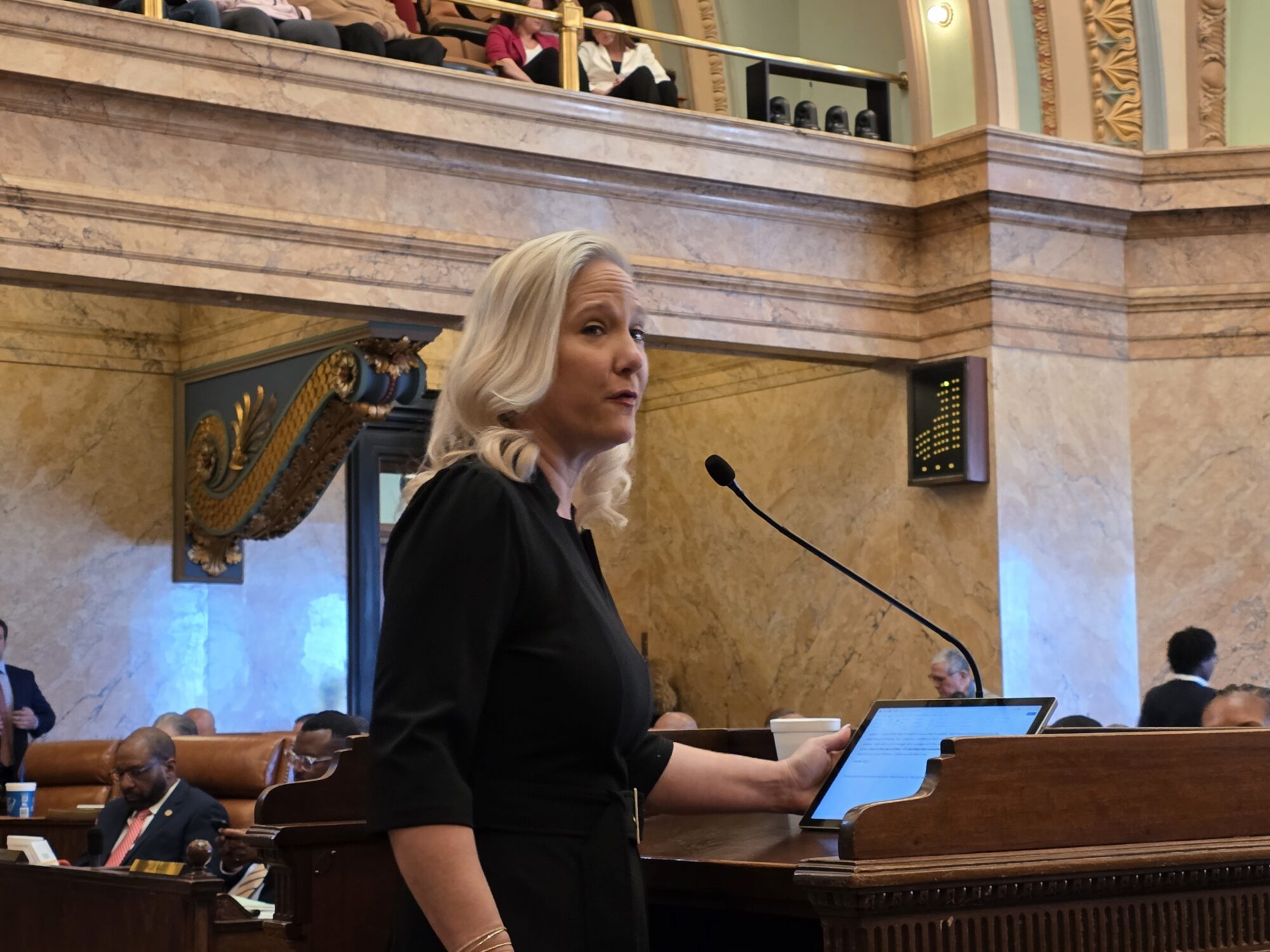
(Photo from MDE livestream)
- Other topics discussed by the Board included Title I and ESSER funding.
The Mississippi State Board of Education is considering removing the end-of-course U.S. History test from the state’s graduation requirements.
During discussion on the matter, Board member Mary Werner asked if removing the end-of-course testing would affect student’s understanding of state and national history.
Dr. Paula Vanderford, Chief Accountability Officer, clarified that while end-of-course U.S. History testing will not be required for graduation, those history courses will still be required during the course of a student’s education. An exam for each history course will also be administered. Vanderford added that there is no state or federal requirement for U.S. History end-of-course testing.
The 50 points allotted to U.S. History in end-of-course testing will be moved to the Mississippi Readiness Index, which will allow districts to select another option under the state’s readiness component, Vanderford explained.
The Department of Education is seeking to reduce the testing burden on students.
“It’s the only test right now that’s not required by federal state law, so it’s the only test that’s optional to be removed,” said Vanderford.
Roughly 70 percent of students have passed the U.S. History test over the last three school years, up from 47 percent in 2021.
The Board voted to move forward in the process, which now allows for public input on the proposed change before a final decision is made.
Werner voted against making the change.
ESSER funds
In other business, State Superintendent Dr. Lance Evans provided an update concerning a recent decision by the U.S. Department of Education to rescind previous approvals for late liquidation of Elementary and Secondary School Emergency Relief Funds (ESSER).
READ MORE: Roll back of federal COVID funding concerns Mississippi state, local education officials
As previously reported, the federal agency’s decision will leave MDE and a number of state school districts without the ability to receive upwards of $137 million in federal reimbursements for programs and construction projects already underway.
“This was dollars that flowed through us in grants and projects out in the districts,” Evans told the Board.
Of that total funding, $33 million was set aside for MDE’s needs, $15 million is held at the governor’s office, and a $89.4 million was allotted to districts. States across the nation were informed of the decision in March.
“We’ve been working since March 28 on developing a plan to re-ask for an extension of late liquidation for our ESSER funds,” Evans added.
The program, established four years ago as a result of the COVID pandemic, allocated funds to assist schools address learning deficiencies and perform pandemic-related construction projects. About $40 million of those funds were expected to help with the finalization of construction projects across the state, with the difference going towards academic related needs such as counseling and academic remediation efforts.
In the meantime, Dr. Evans advised against terminating contracts to avoid violations of the ESSER program’s spending requirements. However, if the need arises, contracts for consulting services not yet rendered could be safely terminated, he said.
Dr. Evan’s concern is the money set aside for the various construction projects already underway, even though most districts report that contractors understand the situation and are working with officials. The State Superintendent did note that there is a possibility the state may be on the hook for spending that has not yet been reimbursed if the U.S. Department of Education maintains the decision issued in March.
“I don’t feel it’s appropriate for Mississippians to have to cover the difference in something like that,” Evans said. “I mean, this is the equivalent of going to a lender and them granting you a half-million builder’s loan, you getting $400,000 into it, and them saying, ‘Oh yeah, we’re only going to give you $300,000.'”
Dr. Evans advised the Board to be ready to make concessions and prioritize the districts that have ongoing construction projects.
Title I funds
Board President Glenn East explained to the members that Title I dollars are codified into law and cannot be affected by an executive order.
As a result, MDE can expect to continue receiving Title I, IDEA and Child Nutrition funding, unless Congress decides to take up those matters.
Of the total funding used to support Mississippi’s education system, Dr. Evans explained that 23 percent of that funding is federal, 45 percent comes from the state, and the remaining 32 percent comes from local tax collections.
Unwinding of DEI
Dr. Evans told the Board that MDE had received a compliance letter from the U.S. Department of Education stating that all school districts across all states will need to comply with the federal government’s anti-discrimination obligations to continue receiving federal assistance.
That letter has been passed on to all Mississippi school districts.
“As you know, we are a local control state. Local districts make those decisions. We don’t make those decisions for them,” Evans added.
The notice comes as the Trump Administration seeks to unwind diversity, equity, and inclusion (DEI) practices within the federal government.
Dr. Evans added that the Mississippi Legislature did pass HB 1193, which prohibits public K-12 schools as well as public colleges and universities from engaging in discriminatory practices under the banner of DEI as it relates to employment and student achievement. Violators could face a loss in state funding.
READ MORE: Lawmakers seek to advance merit over DEI in Mississippi public schools and universities
“This act seeks to ensure that employment, academic opportunities and student engagement are based solely on individual merit, qualifications and academic performance, without consideration of an individual’s views on diversity, equity and inclusion,” the legislation states.
Governor Tate Reeves has until April 24 to sign the bill into law, veto it, or allow it to become law without his signature.
You can watch the full Board of Education meeting below.











